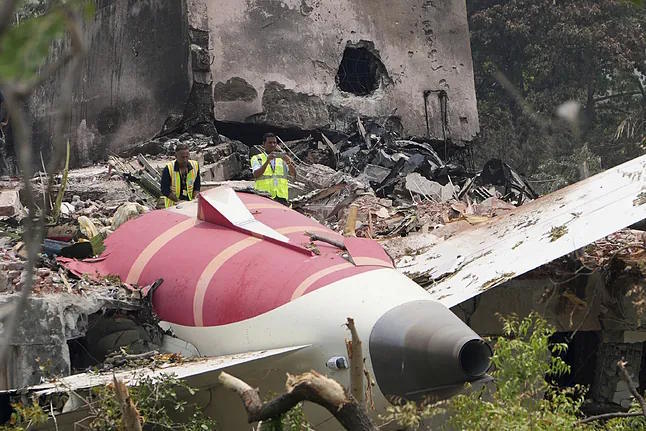On Monday, just four days after an Air India Boeing 787-8 Dreamliner crashed shortly after takeoff from Ahmedabad airport, another identical plane from the same company turned back 15 minutes after departing from Hong Kong. "For technical reasons, we would like to stay closer to Hong Kong, maybe return and land again once we solve the problem," the pilot told air traffic controllers just before returning to the runway of the former British colony. It was en route to New Delhi.
In the early hours of Tuesday, Air India's flight AI-180 was immobilized at Calcula airport, where it was making a stopover from San Francisco. Its final destination was Bombay, India's financial center. However, during the stop, technical staff detected a problem in the left engine and all passengers had to disembark.
Following this incident, two other Air India flights were suspended because the civil aviation authority of the South Asian giant ordered urgent pre-flight checks on the fuel systems, engines, and other components on the Boeing 787s.
All of this puts the spotlight on the safety of the airline, which is under close public scrutiny after a plane crash last week that left over 270 dead, including 241 passengers and crew onboard the aircraft, as well as students from the college the plane crashed into and residents of the residential neighborhood where the disaster occurred.
India's Aircraft Accident Investigation Bureau, leading the investigation with assistance from teams from the United States and the United Kingdom, has not yet provided any indication of the causes of what has been the worst air disaster worldwide in over a decade. Experts have raised doubts about the position of the aircraft's wing flaps, the thrust generated by its engines, and why the landing gear remained down in the seconds before the crash.
Investigators found one of the black boxes on Friday and yesterday recovered the cockpit voice recorder (CVR) among the debris, crucial for unraveling all the mysteries as this system records pilot conversations, alarms, and ambient sounds.
In India, many voices are questioning the credentials of an airline that, along with IndiGo, is the most popular in the country. Air India is owned by Tata, an industrial conglomerate that bought the airline from the government three and a half years ago. The CEO is a New Zealander named Campbell Wilson, who pledged that the company would compensate the victims' families and the sole surviving passenger, British businessman Vishwash Kumar Ramesh.
Reporters from the Financial Times in India reported this week that when Tata bought the airline in a deal worth around 2 billion euros, Wilson found a company in the red, with some planes grounded and being looted for spare parts, and with outdated computer systems.
The new management invested $2 billion in new systems, hired over 9,000 new employees, and placed an order for 470 new Boeing and Airbus planes in an attempt to turn Air India into a world-class airline. The company's finances improved, but there have also been several fines from Indian regulators for safety violations.
The crashed 787 Dreamliner, of American manufacture, is one of the most modern passenger planes in service, a wide-body, twin-engine aircraft. Thursday's crash was the first for this model (13 years old), unlike the 737 Max, which has caused many headaches for Boeing with two accidents shortly after entering service.
